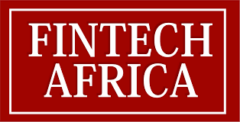Online payments reached record heights in Nigeria in the third quarter of 2020, when the value of transactions increased to $116 billion from $68.3 billion in the same period in 2019.
But this welcome jump came with a staggering increase in financial fraud.
According to Quartz Africa, between January and September 2020, fraudsters made over 46,000 attempts on customer accounts, three times the level for the same period the year before. 91% of those attempts succeeded.
In the 9 months between January and September 2020, fraudsters stole N5 billion ($12 million) from customer accounts (pdf), the equivalent of 173,000 Nigerian workers’ minimum wage for a month.
The trend sets Nigeria back as it pivots to a cashless financial system that was, among other things, motivated by a desire to prevent financial fraud.
In response, Central Bank of Nigeria (CBN) has published new guidelines this week to tighten the screws around the system behind the unique 11-digital bank verification numbers (BVNs) that identify bank customers.
And by doing so, the regulator is upgrading its watchlist to more easily track offenders.
CBN is safeguarding a crucial fintech backbone
Since Nigeria introduced BVNs in 2014, every bank customer has been mandated to get one, except for entry-level accounts that have a N50,000 (about $100) maximum deposit limits. Customers provide personal biodata, and biometrics at a bank branch or through an agent to a BVN.
As of April 2020, there were 41 million BVNs in Nigeria. Since a customer can only have one regardless of how many bank accounts, it is the best proxy for knowing how many Nigerians are included in the formal financial system. BVNs are arguably the foundational identity instruments that have enabled Nigeria’s fintech boom, especially because no trusted digital identity standard existed before them.
But the CBN and other key actors responsible for managing the BVN database—namely banks, and the Nigeria Inter-bank Settlement Scheme (NIBSS)—appear to have been lax in managing the BVN database over the years.
Anecdotes and at least one research study suggest that fraudsters have used customer BVNs to steal money from unsuspecting customers.



